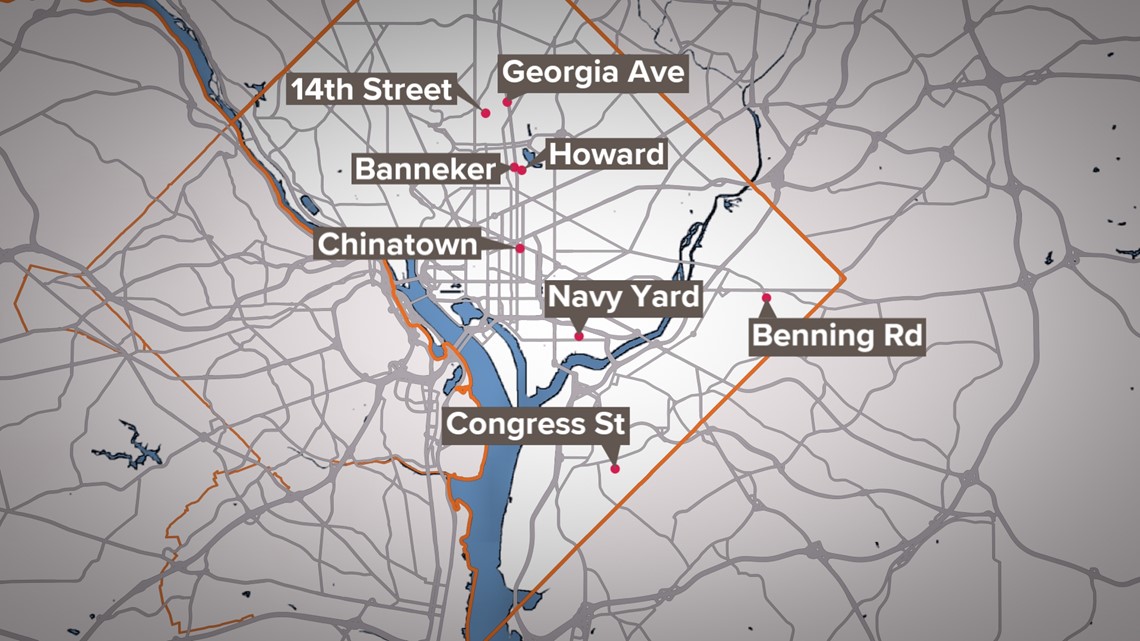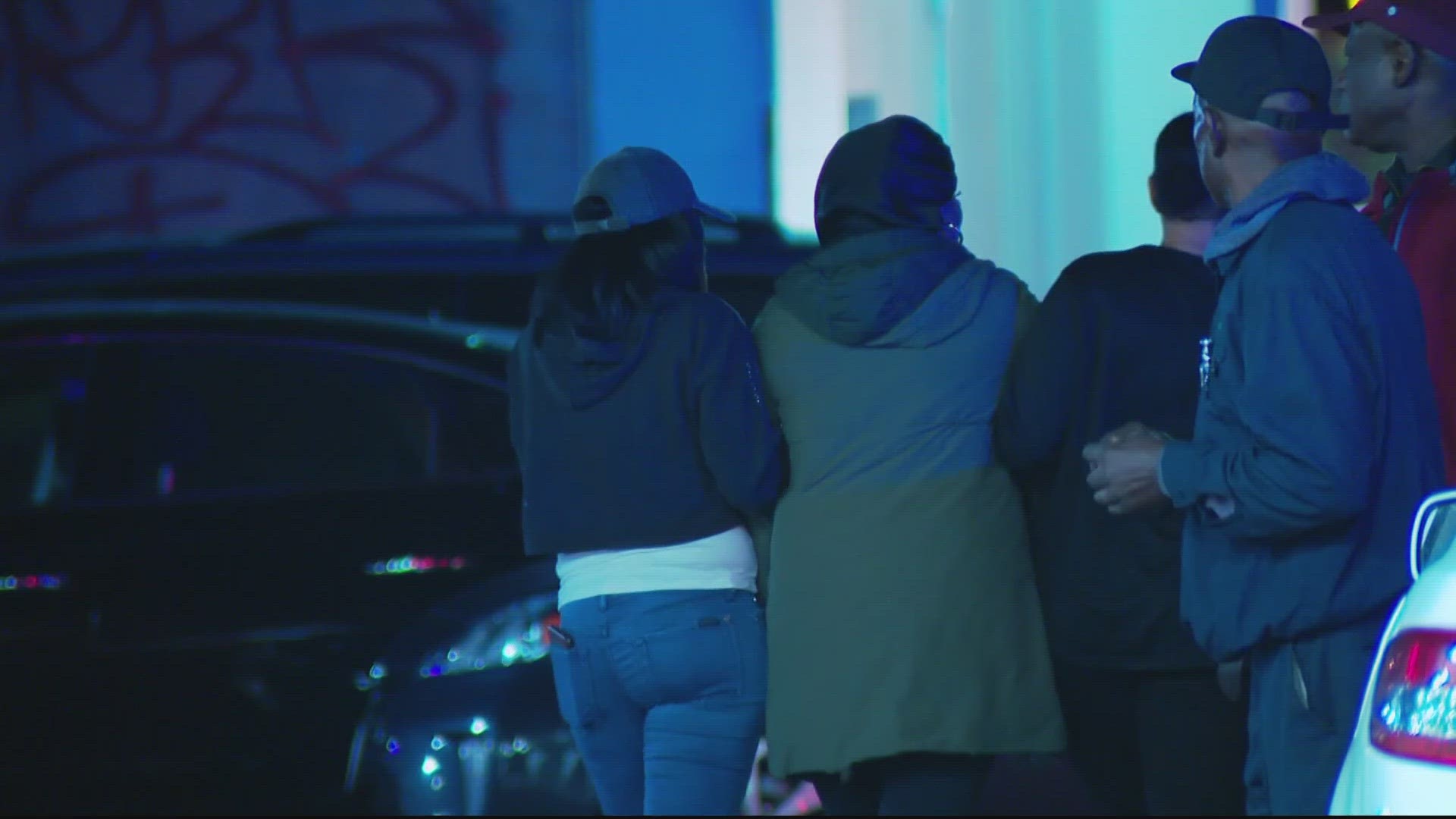WASHINGTON — D.C. is ramping up enforcement of a curfew in the District for anyone younger than 17 starting Friday.
District officials say the goal of the “Juvenile Curfew Enforcement Pilot” is to enforce the curfew, not to arrest kids, but the mayor says it is about consequences.
Starting Friday D.C. will require kids under 17 to be off the streets at night from 11 p.m. to 6 a.m. Sunday through Thursday and from midnight to 6 a.m. on Friday and Saturday.
Officers from the Metropolitan Police Department's (MPD) Youth and Family Engagement Bureau will patrol seven initial focus areas to identify juveniles in violation of curfew.
- District 1: Chinatown and Navy Yard
- District 2: U Street
- District 3: Howard University/Banneker
- District 4: 14th Street between Otis and Spring Road, NW
- District 5: 4000 Georgia Avenue, NW
- District 6: 4400-4600 Benning Rd, SE
- District 7: 1300 Congress Street, SE


"Areas where we were seeing, quite frankly, mobs of young people who were showing up at different locations," Mayor Muriel Bowser said Thursday.
According to MPD, those who violate curfew will be brought to the Department of Youth Rehabilitation Services until they can be reunited with a parent or guardian the next morning. This new protocol introduces the teen and their family to the services offered by DYRS. Some of these include mentorship programs, vocational training, job placement, free meals, and it’s all at no cost to the family or individual.
"I think that the difference between going to a police station in the middle of the night and going to DYRS gives us the opportunity to have them connect with officials whose job it is to work with kids who are at risk," Bowser said.
With a series of violent and even deadly crimes recently, allegedly committed by young teens, WUSA9 asked Mayor Bowser if police should have enforced this curfew earlier in the summer.
"The curfew is enforced. I don't want to give anybody the impression that curfew is just now being enforced," she said. "It will be more focused and possibly more enforcement depending on what's happening on those identified corridors."
"None of us wants to be in a position where we're teaching children that there are no consequences for bad activity," Bowser added. "Because if we don't teach them, they're going to learn it one way or the other and they're going to learn it, unfortunately, by going to a hospital, going to a funeral, or going to jail. So let's start teaching them while we have a chance to put them on the right track."
There are some exceptions for young people to be out past curfew.

